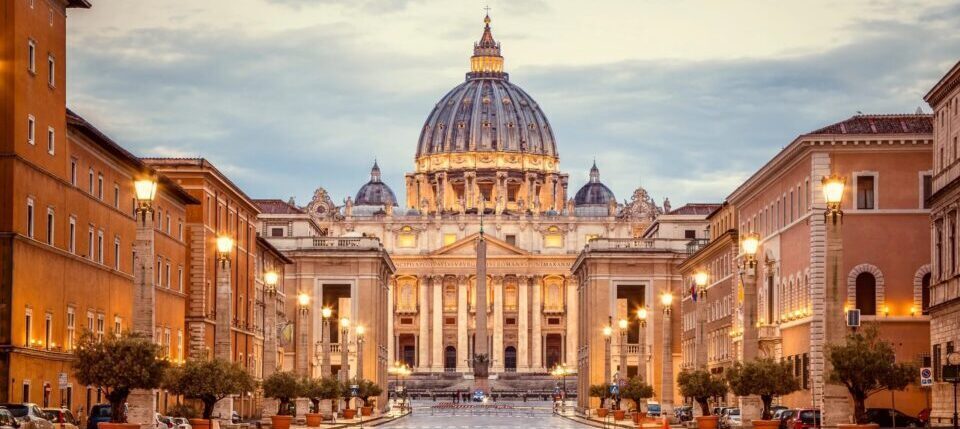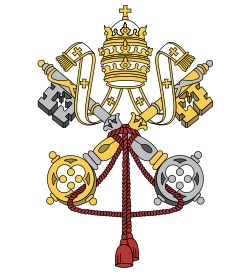Over 15,000 young people met with Pope Leo XIV via video link on Friday, as they attended the National Catholic Youth Conference (NCYC) in the US city of Indianapolis.
Moderated by Katie Prejan McGrady, the event saw six young Catholics ask the Pope to share his thoughts on topics ranging from the Sacraments and mental health to artificial intelligence and the future of the Church.
In his opening remarks, Pope Leo praised the American youth for taking the time to meet together in person, and encouraged them to be active members of their parish communities.
The conference gave them the chance to attend Mass, pray before the Blessed Sacrament, and receive the Sacrament of Reconciliation, and the Pope said these activities are “real opportunities to meet Jesus.”
Life in the Sacraments
The first question put to the Pope asked about accepting God’s mercy when we’ve sinned or let others down.
Pope Leo XIV acknowledged that everyone struggles with asking for God’s mercy and accepting that He truly does forgive us in Confession.
“Sin never has the final word,” he said. “Whenever we ask for God’s mercy, He forgives us. Pope Francis said that God never gets tired of forgiving—we get tired of asking!”
God’s heart, he added, is different than our own, since He never tires of searching for the lost sheep. The Pope invited young people to encounter Christ in the Sacrament of Reconciliation, confessing their sins openly and welcoming Jesus’ forgiveness in the priest’s absolution.
Struggling with depression and mental health issues
Next, the Pope responded to a question about mental health struggles, such as feeling sad or overwhelmed.
He invited everyone to open themselves to a deep relationship with Jesus, entrusting their difficulties to Him in prayer.
“In the quiet, we can speak honestly about what is in our hearts,” he said. “During Eucharistic adoration, you can look at Jesus in the Blessed Sacrament and know He looks at you with love.”
Young people, added the Pope, should also find trusted adults whom they trust, so that God can speak to them through others, such as parents, teachers, priests, and youth ministers.
He also invited them to pray for the gift of true friends, who push us to “seek Jesus when life gets confusing or difficult.”
“Many young people say, ‘No one understands me.’ But that thought can isolate you,” said Pope Leo. “When it comes, try saying, ‘Lord, you understand me better than I understand myself,’ and trust that He will guide you.”
Faith and technology
Answering a question about technology’s effects on faith, Pope Leo XIV upheld the usefulness of modern tools to connect people who are thousands of miles apart.
“Technology can help us do many things and even really help us live our Christian faith,” he said. “It also gives us amazing tools for prayer, reading the Bible, and learning more about what we believe.”
At the same time, the Pope noted that technology can never replace real, in-person relationships and participation in the Eucharist, inviting young Catholics to be intentional with their screen time and making sure that technology serves their lives, not the other way around.
Artificial intelligence, said Pope Leo, has become a defining feature of our times, pointing out that safety is not only about controlling the development of AI models but also about empowering people to make healthy decisions through education and personal responsibility.
Every tool should support our journey of faith and intellectual development, not hinder it, he said.
“Be careful that your use of AI does not limit your true human growth,” he said. “Use it in such a way that, if it disappeared tomorrow, you would still know how to think, create, and act on your own. Remember: AI can never replace the unique gift that you are to the world.”
Future of the Church
Pope Leo then responded to a question about the future of the Church, recalling Jesus’ promise to Peter that “the gates of hell will not prevail against the Church.”
The Church prepares for the future by remaining “faithful to what Jesus asks of us today,” he said, recalling that the Holy Spirit has guided the Church through two millennia of issues and challenges.
Young people, said the Pope, are not only the future of the Church but also her present, and he urged them to get involved by attending Sunday Mass and joining youth activities where their faith can grow.
“If you feel the Lord may be calling you to something specific, talk to your parish priest or another trusted leader,” he said. “They can help you discern what God is asking.”
Friends of Christ, missionaries of the Gospel
Finally, Pope Leo XIV expressed his hopes for the future of young people in the Church, inviting them to help shape her in the years ahead.
In response to their youthful desire to do something meaningful, the Pope urged young Catholics to offer their time and talents generously to build up the Church.
“Deep down, we long for truth, beauty, and goodness because we were created for them,” he said. “And this treasure we seek has a name: Jesus, who wants to be found by you.”
Young people are called to be friends of Christ and peacemakers, “who build bridges instead of walls, who value dialogue and unity instead of division.”
“Be careful not to use political categories to speak about faith,” he said. “The Church does not belong to any political party. Rather, she helps form your conscience so you can think and act with wisdom and love.”
In conclusion, Pope Leo invited young American Catholics to listen to God’s call in their lives and to discern their vocation, whether to marriage, the priesthood, or religious life.
“What greater cause could you dedicate your life to than the Gospel?” he asked. “The world needs missionaries. It needs you to share the light and joy you have found in Jesus.”
Pope Leo to young people: Technology can help us live our Christian faith
21 Friday Nov 2025
NEWS


